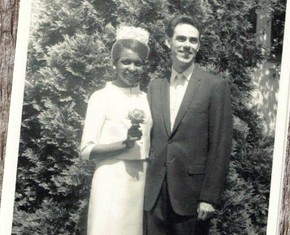The views expressed in our content reflect individual perspectives and do not represent the authoritative views of the Baha'i Faith.
A friend of my family just retired from her job after working at the same place for over 35 years.
Though I suppose this is not an unusual thing to do, most of the people I know have changed jobs, or even their careers, at least once. Some make the changes willingly, while others do so in response to external events. Some have employers; others are self-employed. The variations are countless.
Whatever career path any of us follow, every choice we make leaves behind all the choices we didn’t make.
RELATED: How Blame Stops Change
A person like my friend, who commits to one employer for an entire career, offers not only her daily work but also strength through consistency, continuity, and institutional history. While that’s not the path I followed, I do think we frequently overlook its value in our fast-paced, disposable, youth-oriented culture.
A similar situation occurs when people live in one place for many years, perhaps even for a lifetime. They help ground the entire community in its own roots.
Of course, no matter where we work or live, change will always occur.
I asked my friend her reflections on 35 years at the same place. She was quick to say that much had changed over the years — both within the employer and within herself. I suppose it is inevitable that a workplace over such a long period would have undergone changes, possibly in the very nature of the work itself. Beyond the daily work and range of responsibilities, and even beyond the integration of technology, areas such as ownership, management style, the provision of benefits, and social dynamics change, too.
These changes reflect a shift in consciousness and social progress. Even a brief look at each shows us why.
Technology, at its best, can help ease and even shorten the workday. Ownership and management style can offer employees a chance to participate in profit-sharing. Benefits can improve health and lifestyle. Social dynamics might be inclusive of women and minorities in a meaningful way. These changes have the potential to align the workplace with higher principles, even the though fulfillment of that potential may yet be off in the future.
Change is a characteristic of life, not just our jobs. Seasons change; life begins, then grows, then dies; the planet itself shifts then settles just to shift again. Bob Dylan elegantly summarized this fact through this well-known line: “The Times They Are a-Changin’.” He may have been commenting on social action and change for the young adults of his own generation, but the words continue to resonate. They persist in pop culture because of the truth they tell.
Countless others have commented on change as being a constant in our lives. I especially like these words from Winston Churchill, because they are a reminder that change in and of itself is neither good nor bad: “There is nothing wrong with change, if it is in the right direction.”
Religion changes, too — while its essential spiritual teachings remain the same, its social teachings change, aligned with humanity’s needs.
RELATED: How a Short Baha’i Book Changed My Spiritual Life
Recognizing the difference between conditions that are inward and those that are outward, the Baha’i writings distinguish between spiritual truths and social teachings. Spiritual truths are timeless and have been reconfirmed by each divine messenger. Through these same prophets and messengers, social teachings — relevant to the times — are given to humanity so that we can advance our thinking, our conduct, and our practical affairs.
Bahá’u’lláh addressed this point by writing: “The wisdom of this is that the times never remain the same, for change is a necessary quality and an essential attribute of this world, and of time and place.”
A life decision such as retiring from a job inevitably brings change. In fact, everyone experiences change as we journey through this life, whether we consciously seek it or not. Some people welcome change, some resist it, and some even resent it — but none of us can avoid it.
















Comments
Sign in or create an account
Continue with Googleor